Man and Nature: the Reconciliation?
Interview Hubert Mansion & Julie Schadeck
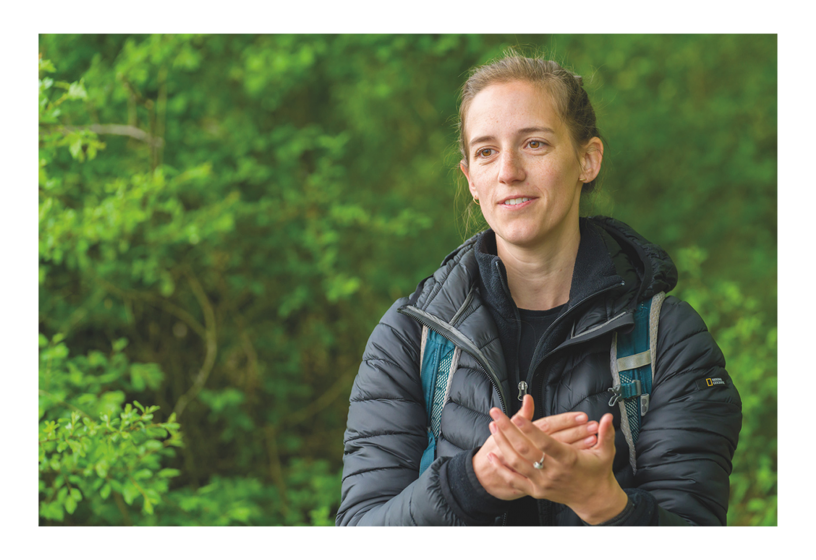
Are there any benefits of a break in the green or facing the ocean? Hubert Mansion and Julie Schadeck, respectively founder and general coordinator of the “Université dans la Nature”, are not only convinced of this, but also demonstrate it scientifically and take you to the forest to experience it. The ultimate objective: to reconcile with the living network, to recapture the positive emotion that does not disconnect human beings from their environment and invites them to act without feeling guilty. Discussion in the woods.
INTERVIEW
HM: Absolutely. This separation is an error in reasoning. In this respect, I am convinced that before we take action to save the environment, we must first change our thinking. We need to deeply reflect on anthropology, philosophy and history to understand where this disconnection comes from and how to reconnect with the living. This idea of separation is an intellectual dead end. We are only gradually coming back from it today.
Hasn't the pandemic accelerated the change in our relationship with nature?
Julie Schadeck: Scientific studies have observed a return to natural environments during the pandemic simply because other places were closed. However, they also identified an environmental injustice. Individuals who had no garden and had to remain confined in small spaces suffered much more. A need for nature has been strongly expressed, and there has been a significant increase in awareness, but is this a cyclical phenomenon or a major tendency? This is still uncertain.
The dichotomy between Man and nature is now being challenged. It can mainly be observed in the medical field, through the eco-health or One Health approaches...
JS: Yes, our main message is that we must position nature as a public health tool. This is tomorrow's primary challenge. It is imperative that the impact of nature on health, and by extension, on the economy, is being documented within the political sphere. We are only at the beginning of this approach. Still it is undeniable that we are moving in this direction as more and more studies are scientifically demonstrating the strong impact of nature on our health.
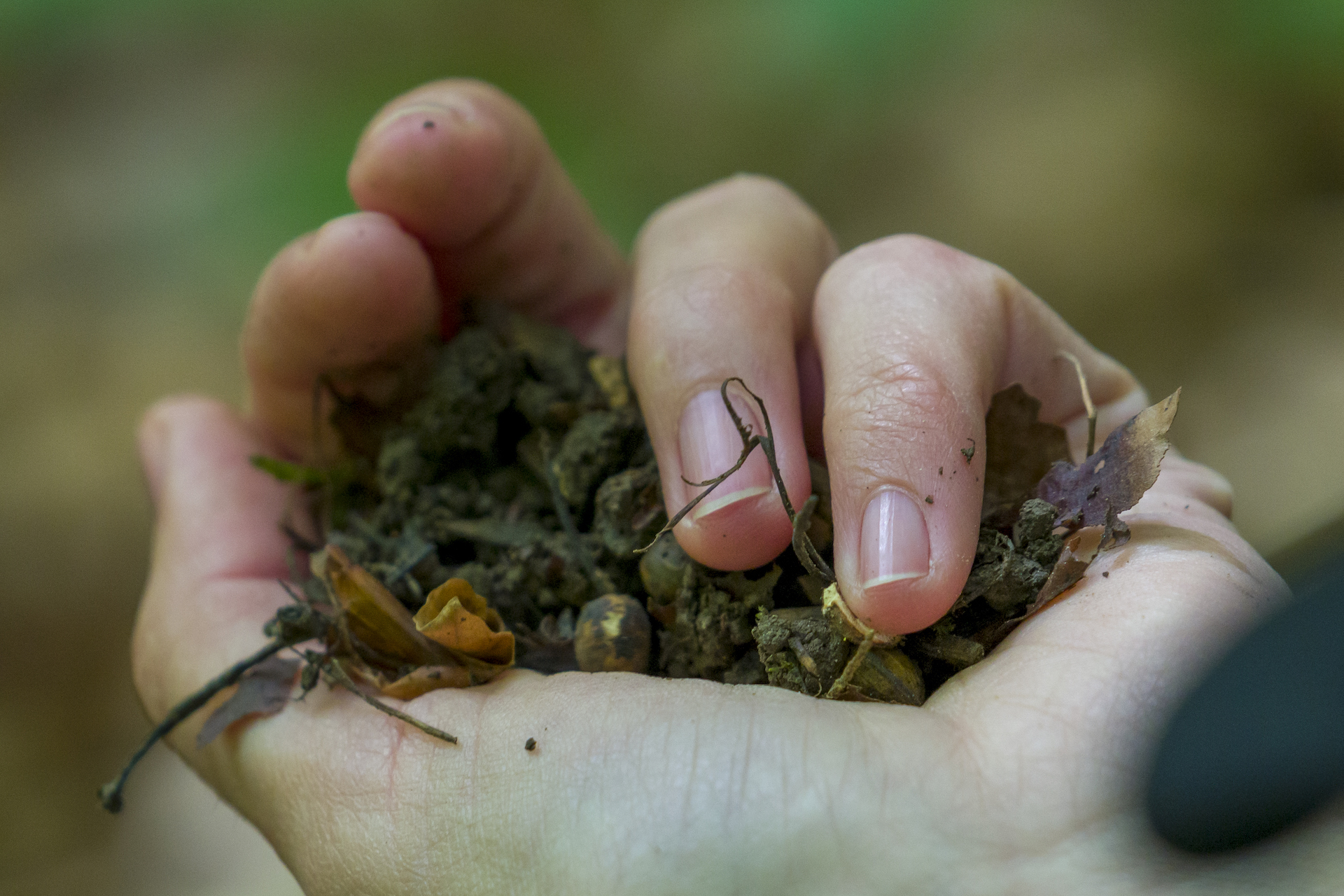
Lia Rosso, who is active in "Université dans la Nature", states that the link between the soil and our microbiota even plays an important role in certain psychological disorders. Is this so-called integrative medicine the future?
JS: Absolutely. Studies show that the state of our microbiota is very much linked to the state of the soil. The latter feeds us. If the soil is poor, the microbiota will be it too. The study of the immune system shows that we have bacteria in us that come from the ground, and that they play a critical role, not only in our physiological but also in our psychological health. An interesting experiment on this subject shows that transferring bacteria from the faecal matter of depressed rats to psychologically healthy rats, is sufficient for the latter to become depressed. This questions our approach to what is dirty and what is clean. Faecal matter, soil... are perceived as dirty and dangerous. Our culture is made up of dichotomies and needs to be revised. If this is well-understood, especially in schools, where children require greater exposure to rich soil to strengthen their immune systems, it will mark a real change.
Our relationship with nature is in fact our relationship with our body. Are we moving from the vision of a body-machine to a living body?
HM: Of course, because the particularity of our body is that it can heal itself. The difference between a human body and a bridge is that the former can heal itself, just like a tree. This is the vital force the Greeks called "phusis", which is a regulating force. It is important to be conscious of this.
We also hear about our 'emotional body'. What emotions come with this reconnection to nature?
HM: We have observed that people who wish to reconnect with nature are fundamentally seeking to reconnect with their own nature. This is the deep quest of the individual in the West today: who is this individual? When an individual is in the forest, it is precisely this emotion that is experienced. One is in silence, often alone. When there is no longer a constant flow of information to be absorbed, inner knowledge comes up. Consciousness works by stepping back: it is at the moment when an individual steps back that awareness of many things is reached. The word reflection encapsulates this idea. It is a moment when one looks at oneself. The right to have one's own nature is the primary emotion expressed.
The other great emotion that characterises an experience in nature is wonder. To discover how living things are interconnected, how all this fits together and responds to each other, is a cognitive dizzying experience. It is extraordinary. A forest is not just a collection of trees. It is a universe beyond us.
A vertigo of the immense?
HM: Yes, because apart from catastrophic events, we are no longer used to being dominated by nature, but rather in a situation of control where we mow the lawn, lay out the flowerbeds...
This vertigo of the immense is present - but accompanied by intimacy. If we manage to be intimate with the immense, something magical happens. These moments are of great emotion. They fuel a spiritual reflection that helps us find our place within the living.
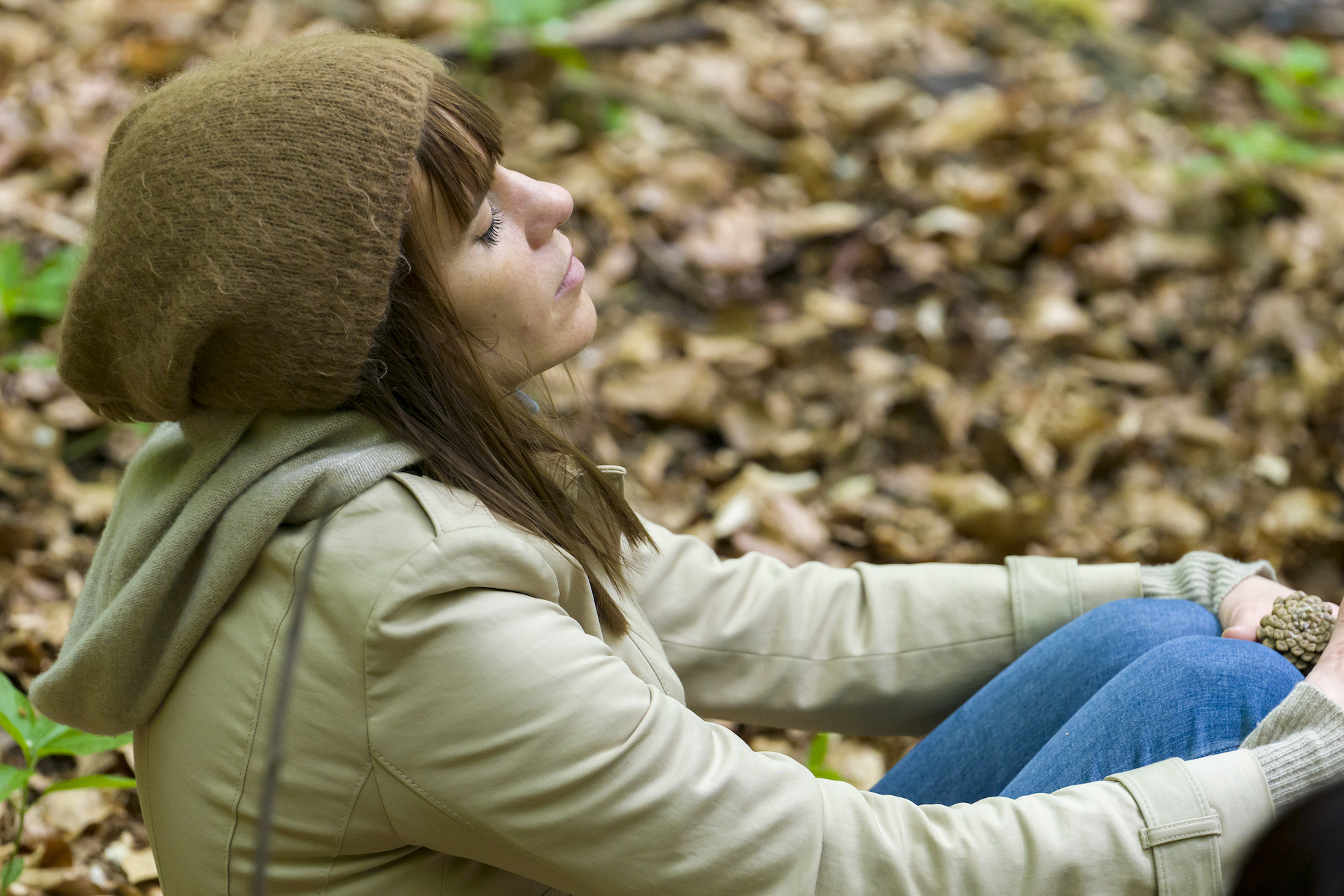
To move towards this path, what do you concretely propose within the "Université dans la nature"?
More generally, our objective is to be a transmission belt: to share scientific research on the benefits of nature to civil society and policymakers.
Do you also reach out to organisations such as companies, local authorities, or schools?
JS: Yes, we have already conducted several forest programmes with companies. The Raiffeisen Bank, the CDCL Group and the Minusines company have all taken part in Luxembourg. We have also intervened at entrepreneurial summits in Chamonix and in Canada ("Summit of Minds"), at universities, at schools of entrepreneurship, and of course, within organisations of all kinds. More broadly, it is interesting to see the company's role in reconnecting with the rest of the living world; in particular, how, via biophilic design, the company can bring nature back indoors. This is about breaking away from sanitised work environments and incorporating natural elements. This influences presenteeism, team mood and even heart rate. Taking meetings outside is also recommended. Companies have a huge positive responsibility to provide opportunities for their employees to reconnect, as they spend most of their time awake at work!
We are also engaged with schools. We are trying to raise awareness among the youth. In Quebec, we have set up a programme available to all secondary schools. In Luxembourg, we work with the "Œuvre Nationale de Secours Grande-Duchesse Charlotte" to encourage young people to return to nature. We are thus adapting our programme to the young public and will soon be taking more than 500 young people into the forest. Finally, in Italy, we have collaborated with the National Institute for Educational Research, as we believe that educators should be educated first. Education should not be limited to teaching about ecological disasters, but it is also necessary to teach about the benefits of nature. This is where it starts. Univocal alarmism contributes to distancing people from nature and generating negative eco-emotions such as solastalgia.
So, is it easy to reconnect?
HM: No, it's not easy because to do so, we have to disconnect one by one, all the threads that link us to these ancient conceptions that establish a dichotomy between Man and nature. This requires a lot of inner work of reflection and deconditioning.
Connectivity is, in fact, a scientific concept that has long been studied in environmental psychology and sociology. Many people think it is something more or less fanciful, but it is not. It is a sense of belonging, a feeling that is fundamentally linked to environmental identity. It is a feeling of being connected to the natural world. It is perfectly possible to feel it on the top floor of a flat in Manhattan and not in the middle of the woods. Thus, you don't have to be in nature to reconnect. Although the experience of oneself in nature helps to build this identity of course...
Precisely, what techniques do you use when you take groups into the forest?
JS: Our approach is based on scientific research. In this way, we are differentiated from pure mindfulness activities. We work jointly on two dimensions: the cognitive aspect, where we scientifically explain the benefits of Nature, and the sensory dimension. And both are inseparable. The programme is based on our five senses: touching tree trunks or walking barefoot is certainly part of it, but we provide the scientific arguments to understand where the benefits are.
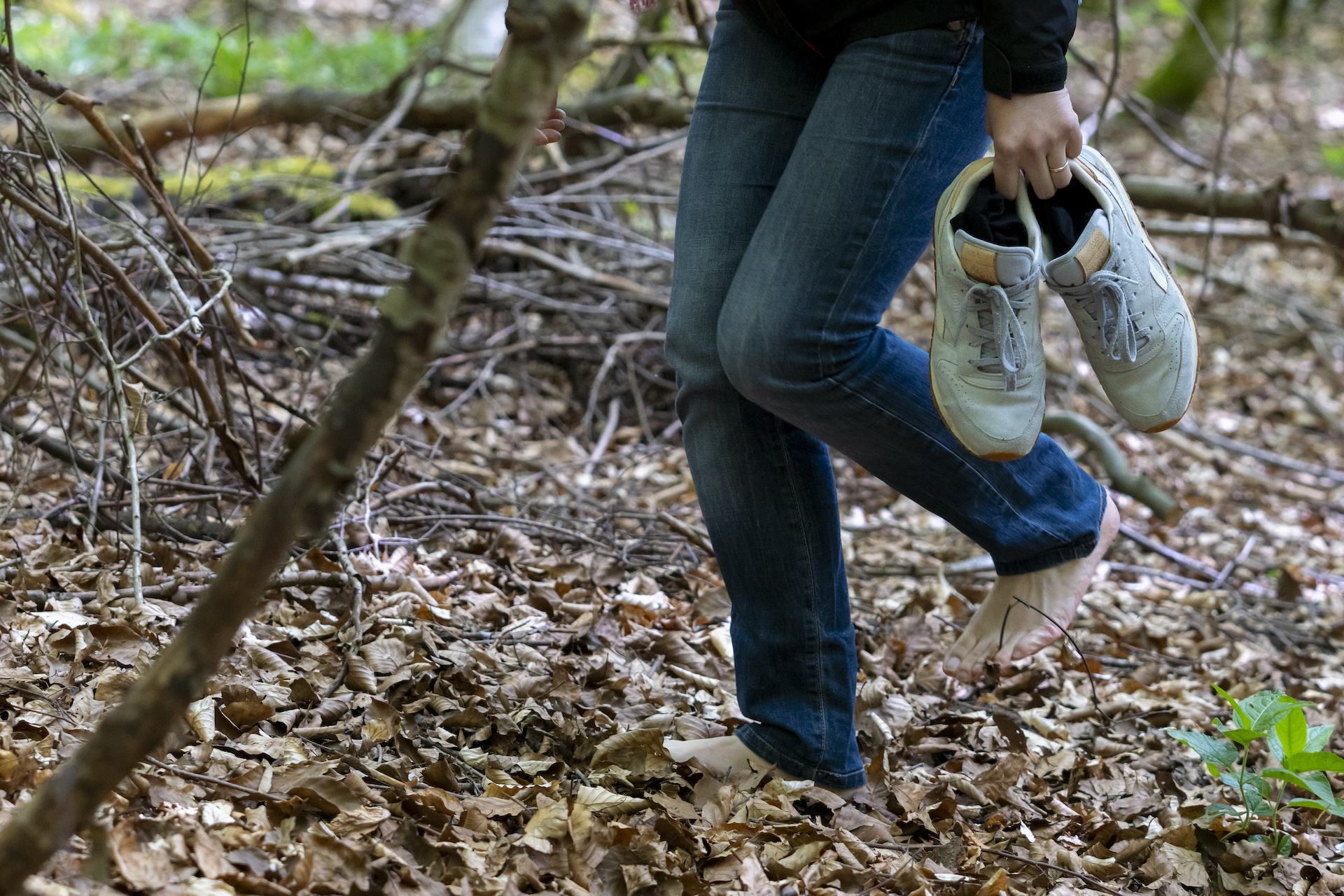
Precisely, what techniques do you use when you take groups into the forest?
JS: Our approach is based on scientific research. In this way, we are differentiated from pure mindfulness activities. We work jointly on two dimensions: the cognitive aspect, where we scientifically explain the benefits of Nature, and the sensory dimension. And both are inseparable. The programme is based on our five senses: touching tree trunks or walking barefoot is certainly part of it, but we provide the scientific arguments to understand where the benefits are.
Have you been able to quantify these benefits?
JS: We have had our activity validated by scientific research at McGill University in Canada. About 60 participants were equipped with sensors on their fingers which transmitted to computers the measurement of temperature, skin conductivity and heart rate. For the first time in the world, we were able to evaluate in real- time the impact of certain activities on the physiological system. The results show unequivocally that the impact of a walk in nature is major: our parasympathetic system, which functions when we are relaxed, is strongly activated. Stress markers drop, such as cortisol levels, which fall by an average of 16%.
The participants also completed a test before and after the activity to measure the psychological impact of the activity. It was demonstrated that after 90 minutes spent in the forest, mental rumination ceased. The brain areas activated when facing vegetation are those of empathy and emotional stability, whereas when facing the concrete of the cities, the areas related to anxiety, depression or even aggression are stimulated.
However, the greatest impact is actually long-term, as the participants state, " I will no longer see nature in the same way ", which means that their relationship to the rest of the living world has changed.
Some doctors have even prescribed sessions to reconnect with nature. When will these prescriptions become widespread?
HM: There have been some first nature prescriptions in the British Isles and it is now widespread in Canada, but it is still far from being systematised. First of all, doctors need to be widely aware of the benefits we have just mentioned. This approach is not yet very well received, as many believe that it is an esoteric approach. However, this is not the case at all. We have one of the largest scientific research bases on the subject and the conclusions are unanimous. There is, above all, a great need for information!
Do you believe that this experience of reconciliation with nature drives us to more action to protect it?
HM: There is today a broad consensus about how our ability to care for nature is linked to our environmental identity.
The more the individual tends to identify with the environment, the more likely the individual will take care of it. So we have to start with affect. The big mistake has been to emphasise statistics and distance people from the subject by frightening them. It is important to bring them closer to the beauty of nature first, in an emotional and sentimental approach, and only then to inform them. The research is very explicit on this matter. Today, most people are convinced that humans are bad for nature. This belief is catastrophic because, I remind you, we are natural beings, and this leads to self-hatred. There is a responsibility of the industries in the destruction of our environment, but this responsibility has been shifted to the individuals. Particularly young people's mental health, this is a very negative aspect, because if the human race starts to hate itself, we will reach a dead end.
What are the next objectives of the "Université dans la nature"?
JS: We invest a lot in research. We are currently investigating the subject of accessibility to nature for immobilised people, such as those in retirement homes or hospitals. We would like to measure the impact of exposure to vegetation via virtual reality headsets, which seems promising.
Furthermore, we are working with the Luxembourg Ministry of Health to set up a therapeutic forest. This concept already exists and is popular in countries such as South Korea, for example. This place will be landscaped according to the principles of environmental psychology and where certain natural elements, such as water or certain very beneficial tree species, will be present. People will be able to measure the impact it has on them.
How do you intend to achieve maximum impact?
HM: To achieve significant results, you have to address the decision-makers, whether politicians, business leaders or school directors. Everyone who has a multiplier effect. We believe we can reach them with scientific evidence. We are conducting this in-depth work. Some people in Luxembourg are already convinced, and this can change many things! Our ambition is to share this knowledge to create a real ripple effect.
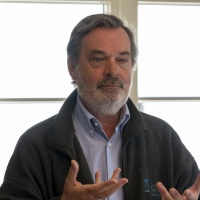
Hubert Mansion
Founder of “L’Université dans la Nature”

Julie Schadeck
General Coordinator of “L’Université dans la Nature”